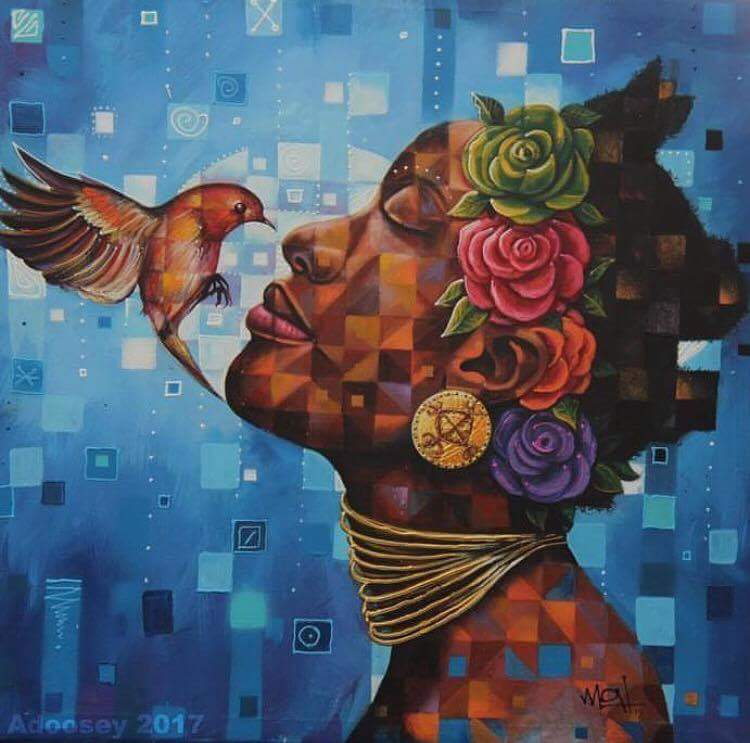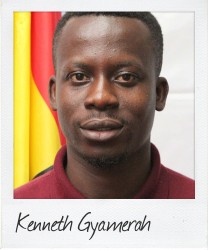“Ghana’s biggest Street Art Festival attracts thousands of artists”
September 18th, 2017The Chale Wote Street Art Festival brings art, music and performance to the streets of Jamestown, a suburb of Accra. Kenneth Gyamerah, 26, a Commonwealth Correspondent from Kumasi in Ghana describes how the festival creates appreciation among participants and patrons.
Since 2011, Chale Wote has included street painting, graffiti murals, photography, theatre, spoken word, interactive art installations, live street performances, extreme sports, film shows, a fashion parade, a music block party, recyclable design workshops and much more.
The first two editions of the event ran for one day each, but the format switched in 2016 when the festival lasted an entire week in August. This switch saw the festival include film screenings and hop from the open street gallery that is Jamestown to other art spaces, such as the Nubuke Foundation, the Museum of Science and Technology. The same format was replicated in this year’s edition, dubbed ‘Wata Mata’.
Commonwealth Correspondent Kenneth Gyamerah was in the fishing community of Jamestown for the Chale Wote Festival, where he interviewed two young Ghanaians, Esi Asare Prah and Moh Awudu.
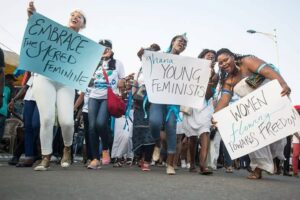 Kenneth: What is the mami wata procession about?
Kenneth: What is the mami wata procession about?
Esi: You know Chale Wote is a street festival basically for art expression and for people to be themselves. And as you may know, there are some double standards that limit women from going to some particular spaces or be extra careful when entering certain spaces. Like just going out (here let me use streets) you’re told to be careful what you wear, how you talk, walk, who you interact with etc to avoid been harassed or raped.
So the mami wata procession, which was led by Chantal Miller (Island Girls Rock, UK) and Fiona Compton (Not Asking For It, UK) with support from AWDF’s Young Feminist Collective, was a space for women to come together, to celebrate our right to be in the street and enjoy the street, to parade and to be respected and not harassed while we are in public.
Kenneth: Wow impressive.
Esi :Thank you
Kenneth: What is your message for the young girls in Ghana?
Esi: As one of our posts for the parade read, I will encourage all women, especially young girls in Ghana to “Embrace the sacred feminine!” Being a female does not make one less of a human. Every bit of you as a girl, from the very physical features like one’s looks to the overly politicised features like menstruation is awesome. Dream, Work for
those dreams and let nothing stop you. Just LIVE!
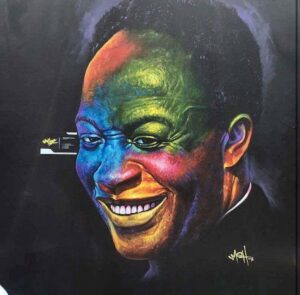 The second interview of the day was with one of the best street artists in Ghana, Moh Awudu.
The second interview of the day was with one of the best street artists in Ghana, Moh Awudu.
Kenneth: What does Chale Wote mean to you as a painter and street artist?
Moh: Chale Wote means a lot to me as an painter and street artist.It gives us the big opportunity to express ourselves by using art to interact, inspire and tell our stories.
Kenneth: What are the challenges young Ghanaian artists face and what do you suggest, going forward?
Moh: The major challenges young artist face in Ghana is the lack of support from the government. People appreciate artwork but unfortunately they don’t buy. I suggest the way forward is government must support artists by investing in them, the 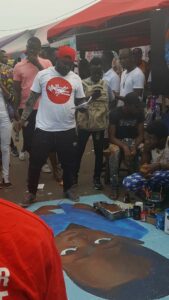 way they support the movie and music industry. They should give opportunities to artist to use art work to educate the public to solve social issues.
way they support the movie and music industry. They should give opportunities to artist to use art work to educate the public to solve social issues.
The young artists need to be themselves. We are gifted with different kinds of styles and techniques, so we have to always display our identity in our art works to promote this country at he international level and tell our own stories. You don’t have to own big positions to make a change in society. We can contribute in our own small ways through our talents.
Reach me on Twitter:@kennethgyamera
Art work: Moh Awudu, feature picture: Esi Asare Prah
…………………………………………………………………………………………………………………
About me: I am a youth activist, writer and a professional teacher.
I am an enthusiast on all issues concerning youth, and feel fulfilled through engaging in policy related discussions and deliberations on youth empowerment and development. I am passionate about organising for a global youth agenda, and want to be the voice for the less privileged in Ghana.
My interests lie in advocacy, writing and teaching, which has led to involvement with a number of global youth-related organizations.
…………………………………………………………………………………………………………………
Opinions expressed in this article are those of the author and do not necessarily represent the views of the Commonwealth Youth Programme. Articles are published in a spirit of dialogue, respect and understanding. If you disagree, why not submit a response?
To learn more about becoming a Commonwealth Correspondent please visit: http://www.yourcommonwealth.org/submit-articles/
…………………………………………………………………………………………………………………
